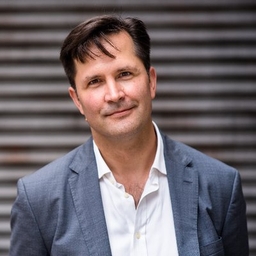
Thomas J. Bollyky
Director of Global Health at The Council on Foreign Relations
Bloomberg Chair in Global Health; Sr Fellow in Int'l Economics & Development @CFR_org. Founder @ThinkGlobalHlth. Law Prof sometimes. Dad (3x); book author (1x)
Articles
-
Mar 27, 2025 |
foreignaffairs.com | Rebecca Patterson |Joshua Kurlantzick |Jude Blanchette |Thomas J. Bollyky
In 2018, Chinese leader Xi Jinping argued that the world was undergoing “profound changes unseen in a century,” a concept that has since become central to Beijing’s geopolitical worldview. The phrase evoked parallels to the dramatic global shifts that followed World War I, including the collapse of European empires and the reordering of international politics.
-
Mar 24, 2025 |
foreignaffairs.com | Michael Froman |Linda Robinson |Thomas J. Bollyky |Yanzhong Huang
Critics of the Trump administration’s early actions on global health—withdrawing from the World Health Organization (WHO) and paralyzing U.S.-funded international health programs—fear that those moves will cede Washington’s longstanding leadership role to Beijing. American power and prestige, they charge, will wane, and China’s will grow. The reality is worse.
-
Jan 17, 2025 |
thinkglobalhealth.org | Chloe Searchinger |Allison Krugman |Thomas J. Bollyky
Syphilis rates have been rising in the United States for 10 years. If untreated, the disease poses grim risks, from heart and brain damage to blindness to miscarriage and infant death. Yet when the U.S. Food and Drug Administration (FDA) announced a shortage of benzathine penicillin G—the only approved treatment for pregnant women—in 2023, the agency waited nine months before importing a version of the drug from a French pharmaceutical company approved for use in Europe.
-
Dec 11, 2024 |
foreignaffairs.com | James M. Lindsay |Thomas J. Bollyky |Joshua Kurlantzick |Gonul Tol
In most capitals across the Middle East, the news of Syrian President Bashar al-Assad’s fall sparked immense anxiety. Ankara is not one of them. Rather than worrying about Syria’s prospects after more than a decade of conflict, Turkish President Recep Tayyip Erdogan sees opportunity in a post-Assad future.
-
Dec 11, 2024 |
foreignaffairs.com | James M. Lindsay |Thomas J. Bollyky |Joshua Kurlantzick |Manjari Chatterjee Miller
For more than a decade, the United States’ Asia policy has been consumed with one issue: the rise of China. President Joe Biden’s views did not fully align with those of President Barack Obama, and both men had many differences with Donald Trump. But all three fretted about what China, as a great power, might do to its region and to the world. They have, accordingly, oriented Washington’s Indo-Pacific strategy around partnerships and policies that can constrain Beijing.
Try JournoFinder For Free
Search and contact over 1M+ journalist profiles, browse 100M+ articles, and unlock powerful PR tools.
Start Your 7-Day Free Trial →X (formerly Twitter)
- Followers
- 6K
- Tweets
- 11K
- DMs Open
- No

RT @ThinkGlobalHlth: How Not to Die (Too Soon), a new book by @devisridhar, explores how governments should be held accountable for decisio…

RT @calebwatney: Someone at Novo Nordisk failed to pay a $450 maintenance fee, which would have kept its patent on Ozempic in force for ano…

RT @CFR_org: "The United States will create blind spots where emerging diseases can incubate before they arrive fully fledged on the countr…